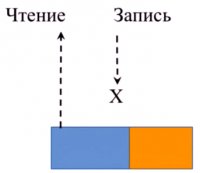Data Storage Structure 1C
 This article is an anon to new functionality.
This article is an anon to new functionality.
It is not recommended that the contents of this article be used to develop new functionality.
A full description of the new functionality will be provided in the documentation to the relevant version.
A complete list of changes in the new version is provided in the v8Update.htm file.
Planned in 8.3.11♪
Now, with enhanced configuration, you can add your own structures to the application. Data storage: handbooks, documents, data registers.
In expansion, you add (or modify) an appropriate configuration facility. When the expansion is downloaded, " summer " , the database is restructured, and by reset the sessions, you can immediately complete the new structures with your data.
What did we do?
 It can be said that this is the most complex and most expected refinement of the expansion mechanism. We have refined the expansion mechanism so that you can now add to the application of objects or requisitions that will be retained in the information database. You could have refined the application, but expansion did not affect the structure of stored data. Now by extension, you can change the data structure, too.
It can be said that this is the most complex and most expected refinement of the expansion mechanism. We have refined the expansion mechanism so that you can now add to the application of objects or requisitions that will be retained in the information database. You could have refined the application, but expansion did not affect the structure of stored data. Now by extension, you can change the data structure, too.
You can add your own:
- Repertoires;
- Documents;
- Registers of information;
- Exchange plans.
Besides this, you can add your own to the guides and documents of the applied decision:
- Audits;
- Tables;
- Table parts audits.
How physically managed
In order not to complicate, we will consider the basic principles of this mechanism in the example of a handbook.
If expansion adds to its own directory, a new table in the database is being created. In this case, it's simple and obvious.
The situation is more complex when expansion changes the existing data structure. If the expansion adds its own proprietary to the application guide, a separate table with a new structure (with an additional column for the new requisition) shall be created for the guide. We'll call her expanded table. The data are transferred from the old table of the handbook. In the future, all references to the handbook will be reverted to the expanded table.
Regardless of the number of extensions modifying the handbook, the expanded table will always be one. Its structure will contain changes added by all enlargements.









